7 Best Herbal Creams For Baldness
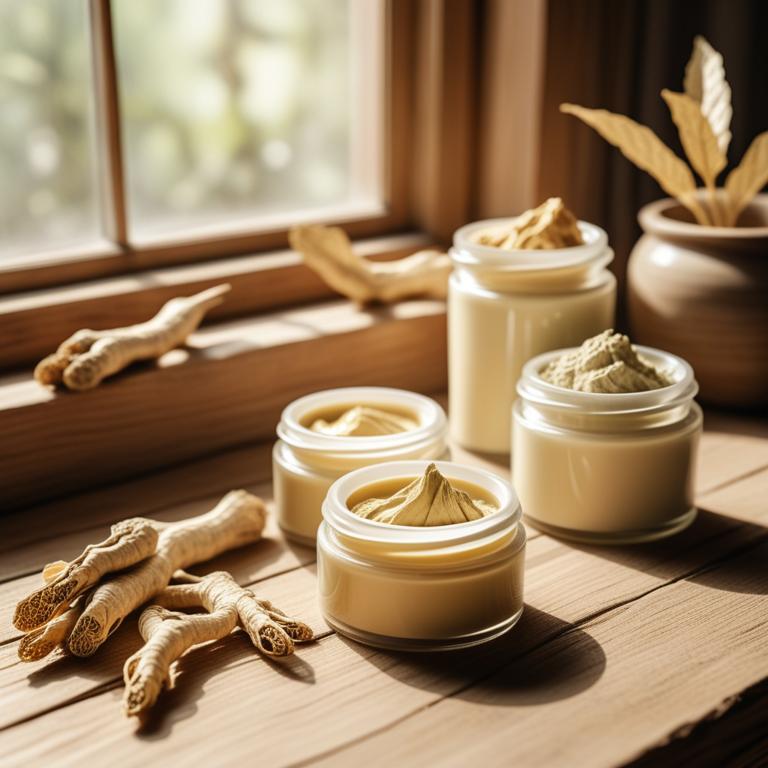
Herbal creams for baldness are topical treatments made from natural plant extracts that aim to promote hair growth, prevent hair loss, and restore a healthy scalp.
These creams are rich in antioxidants, vitamins, and minerals that nourish the hair follicles, leading to improved hair density and reduced shedding.
Some examples of herbal creams used to treat baldness include saw palmetto cream, which blocks the conversion of testosterone to dihydrotestosterone (DHT), a hormone responsible for hair loss; biotin cream, which promotes hair growth by strengthening hair follicles; aloe vera cream, which soothes and calms the scalp, reducing inflammation; and rosemary essential oil cream, which improves circulation and stimulates hair growth.
By using herbal creams, individuals can potentially reverse hair loss, improve hair texture, and achieve a fuller, healthier head of hair.
According to the study, creams for baldness may be effective in reducing hair loss due to the anti-inflammatory and antioxidant properties of certain natural compounds, such as herbal extracts and formulations derived from plants like Urtica dioica, Humulus lupulus, and others.
Below there's a list of the 7 best herbal creams for baldness.
- 1. Rosmarinus officinalis creams
- 2. Centella asiatica creams
- 3. Commiphora mukul creams
- 4. Aloe barbadensis creams
- 5. Curcuma longa creams
- 6. Equisetum arvense creams
- 7. Hypericum perforatum creams
Also you may be interested in...
TODAY'S FREE BOUNDLE
Herb Drying Checklist + Herbal Tea Shopping List + Medicinal Herbs Flashcards
Enter you best email address below to receive this bundle (3 product valued $19.95) for FREE + exclusive access to The Aphotecary Letter.
$19.95 -> $0.00
1. Rosmarinus officinalis creams
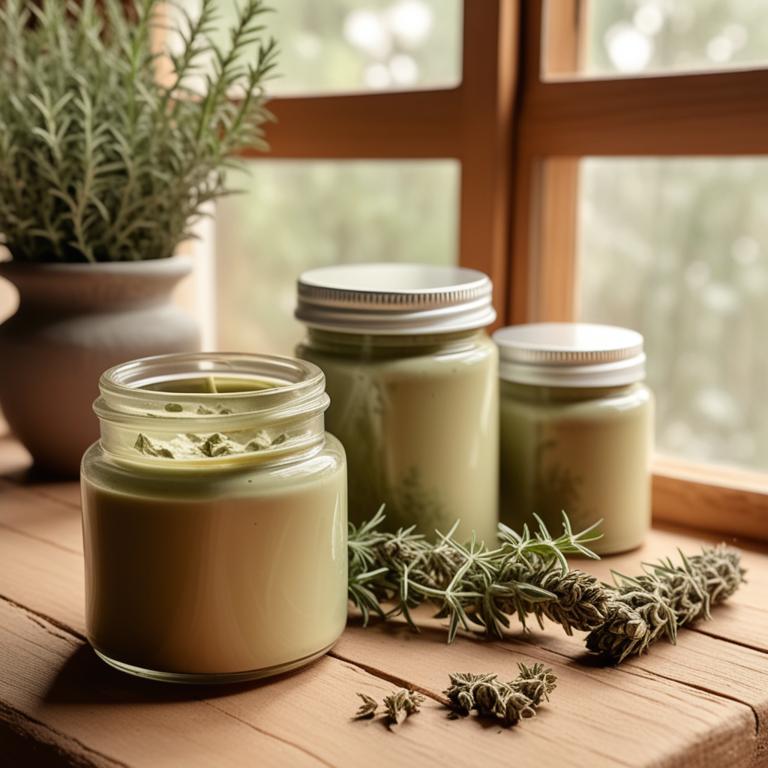
Rosmarinus officinalis creams, also known as rosemary creams, have been used to treat alopecia areata, a common cause of hair loss.
The anti-inflammatory and antioxidant properties of this herbal preparation help to treat this ailment by reducing inflammation and promoting a healthy scalp environment.
The bioactive constituents of rosemary, including rosmarinic acid, carnosic acid, and ursolic acid, help to stimulate hair growth by improving blood flow to the scalp and reducing dandruff.
The benefits of using rosemary creams to treat alopecia areata include promoting hair growth, reducing inflammation, and improving scalp health, making it a popular natural remedy for hair loss.
2. Centella asiatica creams
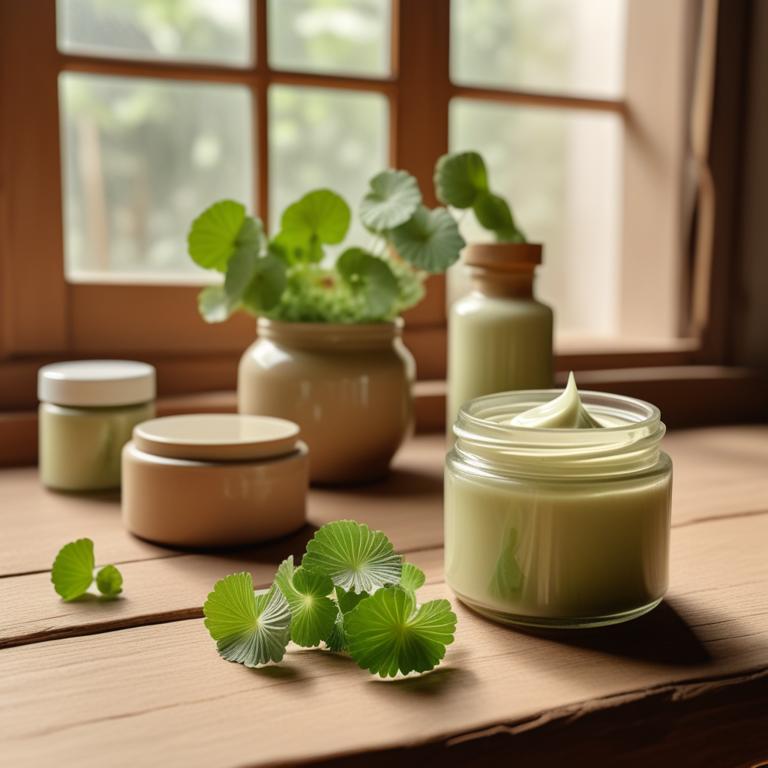
Centella asiatica creams have gained popularity as a natural remedy for treating alopecia, a condition characterized by hair loss.
The properties of this herbal preparation, including its anti-inflammatory, antioxidant, and wound-healing properties, help to treat this ailment by promoting hair growth and reducing inflammation in the scalp.
The bioactive constituents of Centella asiatica, such as asiatic acid, madecassic acid, and brahmine, are responsible for its therapeutic effects, which include enhancing collagen synthesis, improving blood circulation, and reducing oxidative stress.
The benefits of using Centella asiatica creams to treat alopecia include increased hair density, improved hair texture, and a reduced risk of further hair loss, making it a promising natural alternative to conventional treatments.
3. Commiphora mukul creams

Commiphora mukul creams are a traditional herbal preparation used to treat the baldness ailment, also known as alopecia.
These creams contain the bioactive constituents guggulsterones, which have been shown to stimulate hair growth and prevent hair loss by reducing the levels of dihydrotestosterone (DHT), a hormone that contributes to baldness.
The guggulsterones in Commiphora mukul creams also have anti-inflammatory properties, which help to reduce scalp irritation and promote a healthy scalp environment, ultimately leading to the growth of new hair.
By stimulating hair growth and preventing hair loss, Commiphora mukul creams offer a natural and effective solution to treat baldness, promoting a fuller and healthier head of hair.
4. Aloe barbadensis creams
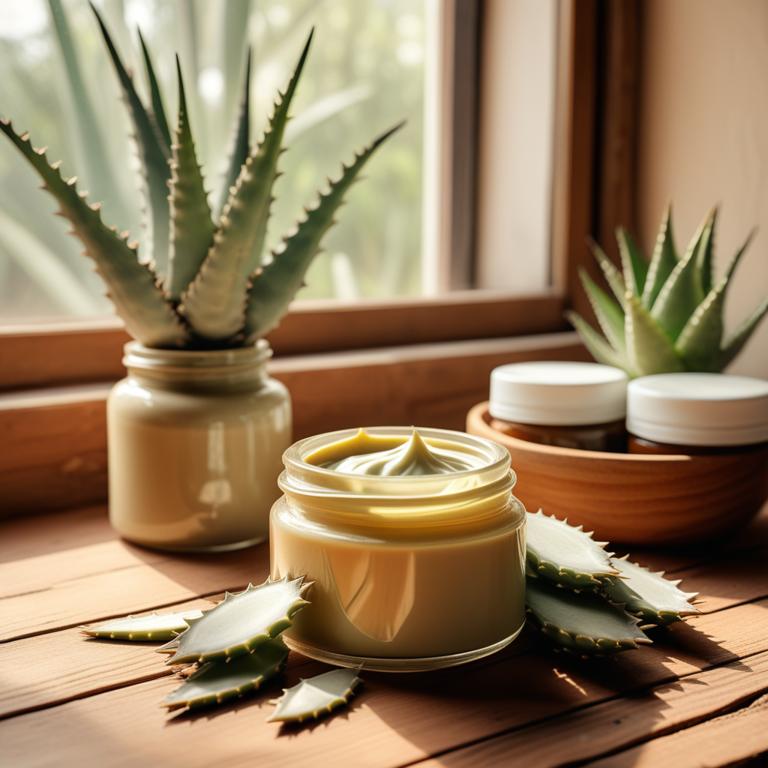
Aloe barbadensis creams have been traditionally used to treat baldness, a condition characterized by hair loss or thinning.
The anti-inflammatory and antioxidant properties of this herbal preparation help to soothe and calm the scalp, reducing irritation and promoting a healthy environment for hair growth.
The bioactive constituents, including aloin, aloe-emodin, and acemannan, in Aloe barbadensis creams stimulate hair growth, improve blood circulation to the scalp, and increase hair density.
The benefits of using Aloe barbadensis creams to treat baldness include promoting hair growth, reducing dandruff and itchiness, and improving overall scalp health.
5. Curcuma longa creams
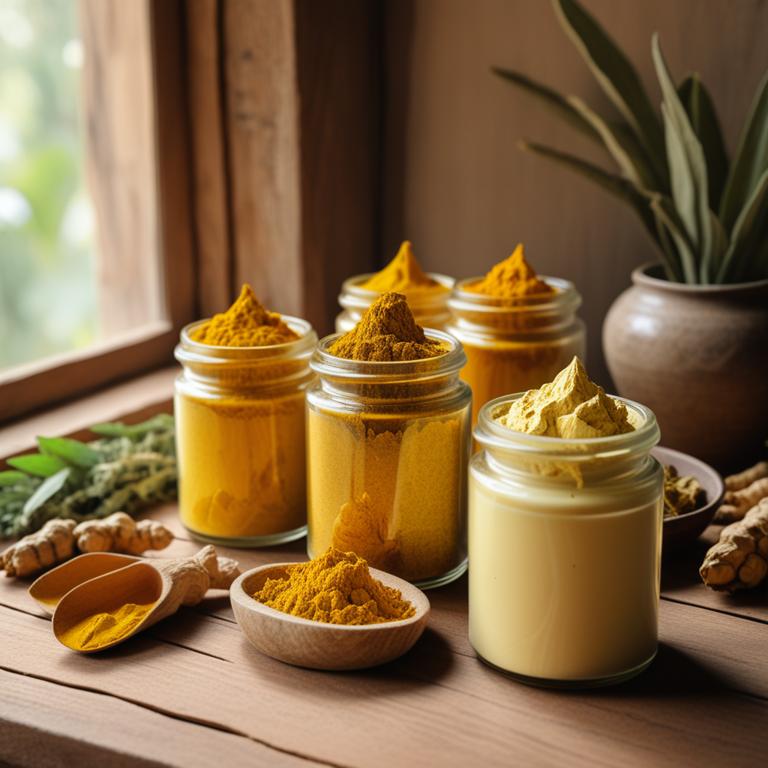
Curcuma longa creams have been gaining attention for their potential in treating baldness, a condition characterized by hair loss due to various factors such as genetics, hormonal imbalance, or scalp infections.
The properties of this herbal preparation that aid in treating baldness include its anti-inflammatory and antioxidant properties, which help to soothe the scalp, promote hair growth, and reduce dandruff.
The bioactive constituents of Curcuma longa creams, including curcumin, demethoxycurcumin, and bisdemethoxycurcumin, help to stimulate hair growth by inhibiting the activity of 5-alpha-reductase, an enzyme responsible for converting testosterone into dihydrotestosterone (DHT), a hormone that contributes to hair loss.
The benefits of using Curcuma longa creams to treat baldness include promoting hair growth, reducing hair fall, and improving scalp health, making it a promising natural remedy for individuals experiencing hair loss.
6. Equisetum arvense creams
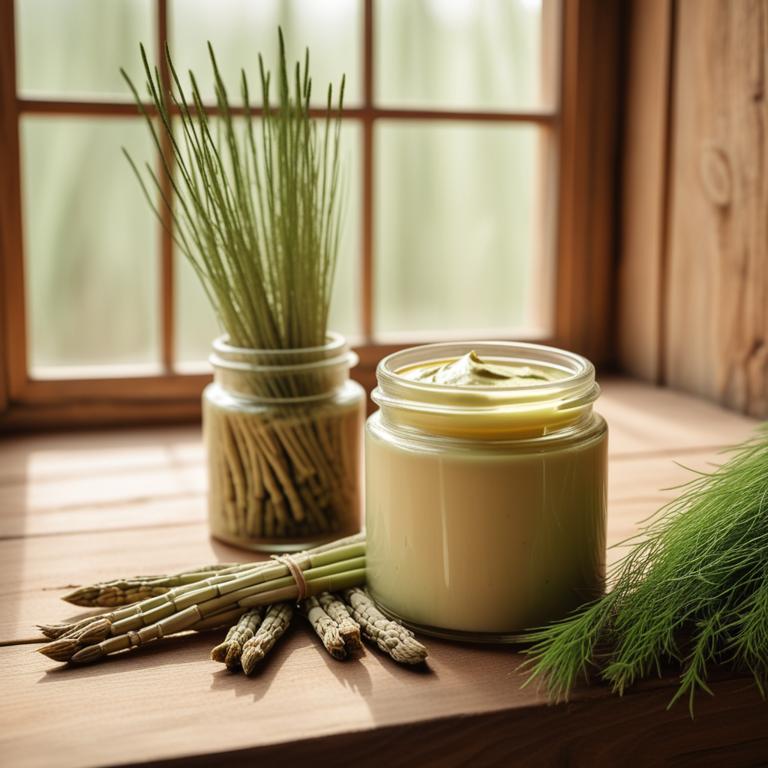
Equisetum arvense creams, also known as horsetail creams, have been traditionally used to treat baldness ailments due to their rich content of bioactive constituents such as silicon, flavonoids, and alkaloids.
The creams help to treat baldness by stimulating blood flow to the scalp, promoting hair growth, and strengthening hair follicles.
The silicon content in Equisetum arvense creams helps to improve hair texture, increase hair density, and reduce hair loss, making it an effective natural remedy for baldness.
The benefits of using Equisetum arvense creams to treat baldness include promoting hair growth, reducing hair fall, and improving overall scalp health.
7. Hypericum perforatum creams
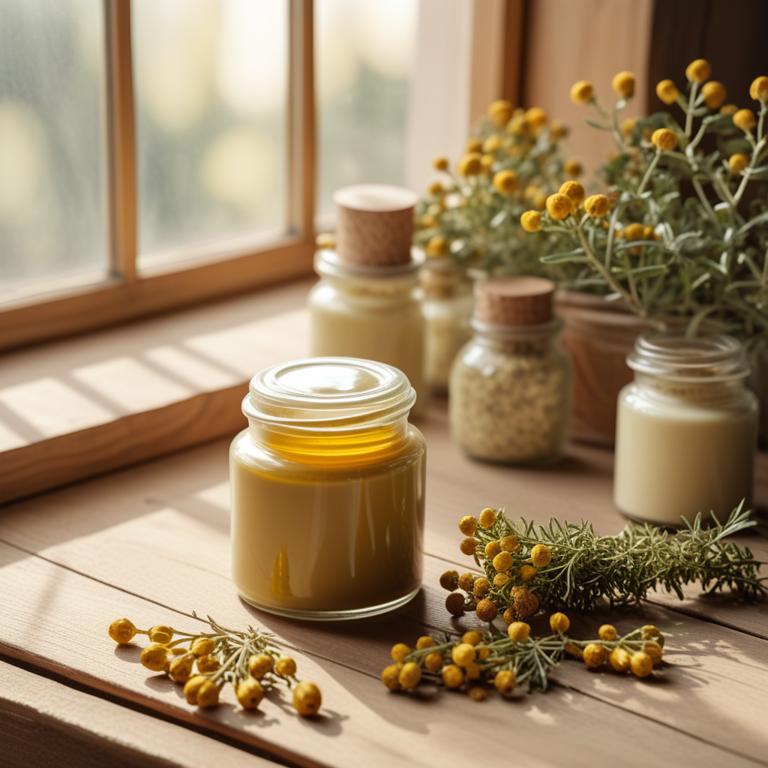
Hypericum perforatum creams, also known as St. John's Wort creams, have been traditionally used to treat alopecia or baldness due to their anti-inflammatory and antioxidant properties.
These properties help to reduce inflammation and promote hair growth by improving blood circulation to the scalp.
The bioactive constituents present in Hypericum perforatum creams, such as hyperforin and hypericin, have been found to inhibit the conversion of testosterone to dihydrotestosterone (DHT), a hormone responsible for hair loss.
The benefits of using Hypericum perforatum creams to treat baldness include promoting hair regrowth, reducing inflammation, and improving overall scalp health.